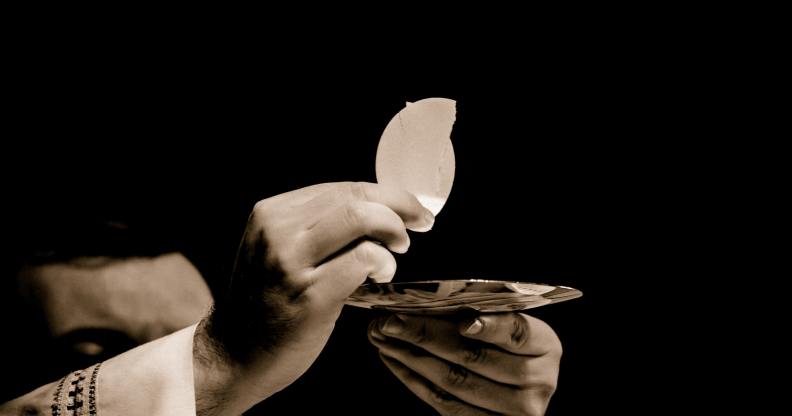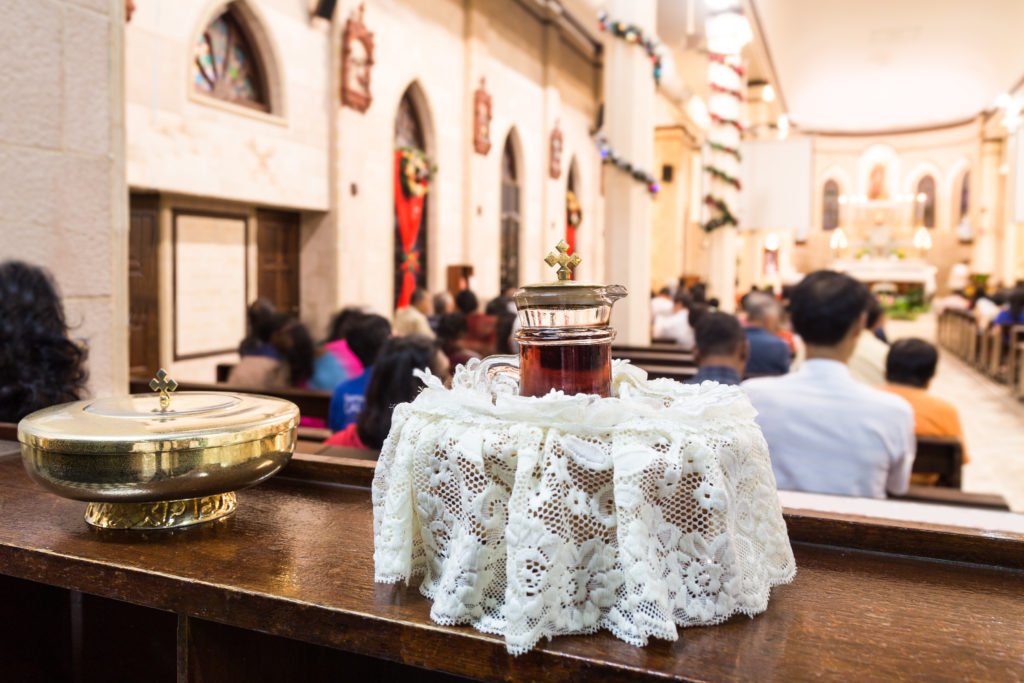Church backs priest who denied communion to a lesbian judge because she’s gay

Judge Sara Smolenski was refused the Eucharist because she is in a same-sex marriage (Pexels)
A Michigan diocese is backing a priest after he refused to give communion to a lesbian judge because she is married to a woman.
Judge Sara Smolenski, chief judge of the Kent County District Court, has been a member of St Stephen Catholic Church for more than six decades.
“I was raised in that church. It created who I am. We were taught ‘love everyone,'” she in an interview with MLive, adding that she had been baptised there as a baby.
Three years ago, Smolenski married to her long-time partner of 27 years. Her marriage was a public news story and Smolenski says that her priest, Father Scott Nolan, had been aware for some time that she was a lesbian.
It did not seem to be a problem until earlier this month, when Nolan told her over the phone that she was not to continue receiving the Eucharist at the parish.
He reportedly demanded that she “respect the church” and not return for the sacrament in the future, and said her marriage to a woman was at the crux of the issue.
“The way he said it was ‘because you’re married to Linda in the state of Michigan, you cannot accept communion,'” she told local news channel WOOD TV 8.

(Envato elements)
“I try to be a good and faithful servant to our Lord Jesus Christ. My faith is a huge part of who I am, but it is the church that made that faith, the very church where he is taking a stance and saying ho-ho, not you.”
The priest told the news channel that he simply “taught what all of the popes who have ever said something about the emergent family have said up to and including Pope Francis,” regarding the reception of holy communion.
He added that he is required in his ministry to ensure that those who receive the Eucharist do so in accord with Catholic doctrine and discipline.
The Diocese of Grand Rapids confirmed this in a statement on Thursday, and said they support Nolan’s position.
“Inclusion and acceptance have been a hallmark of Catholic Churches in the Diocese of Grand Rapids throughout the diocese’s history. They remain so,” the statement claims.
“They presume, however, a respect on the part of individuals for the teachings and practice of the wider Catholic community.
“No community of faith can sustain the public contradiction of its beliefs by its own members. This is especially so on matters as central to Catholic life as marriage, which the Church has always held, and continues to hold, as a sacred covenant between one man and one woman.”

